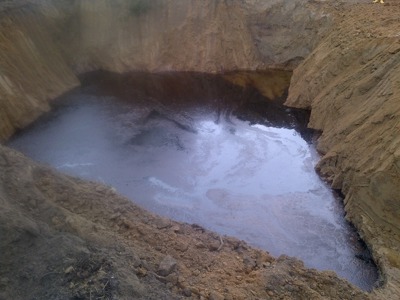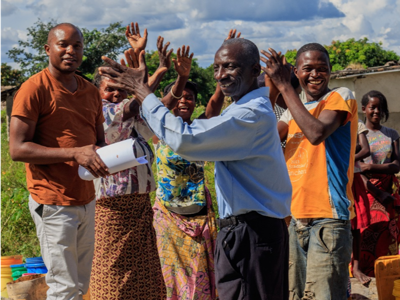
Kabwe lead poisoning Claimants remain committed to securing justice as they seek leave to appeal in case against Anglo American South Africa
Claimants have filed an application for leave to appeal a December judgment that dismissed the certification of a class action on behalf of an estimated 140,000 Claimants, effectively blocking their access to justice.
Posted on 10 January 2024
Today, lawyers acting on behalf of children and women who allege lead poisoning caused by a former Anglo American lead mine in Kabwe, Zambia, have filed for leave to appeal an earlier Johannesburg High Court’s judgment that ruled their claim could not proceed as a class action.
The case is being brought by 12 Claimants on behalf of an estimated 140,000 Zambian women and children who have suffered lead poisoning, which caused and continues to cause permanent brain damage in the surrounding communities.
The Kabwe lead mine (the Mine) was within the Anglo American Group from 1925 until 1974, during which time it was one of the most productive mines in the region. The Kabwe Claimants allege that Anglo American South Africa (AASA) is liable because it played a key role in controlling, managing, supervising and advising on technical, medical and safety aspects of the operations of the Mine, deficiencies which resulted in heavy and ongoing contamination of the local environment with lead. Lead has a half-life of 700 years in soil, and as a result the local community have been poisoned over a period of decades spanning several generations.
The class action case has been filed in South Africa as it would not have been possible for the Claimants to obtain access to justice in Zambia. Amnesty International and a number of United Nations agencies intervened at the certification hearing in 2023 to argue that Anglo American’s opposition to the class action was contrary to its own human rights policy and publicly stated human rights commitments.
The Claimants are represented by law firm Mbuyisa Moleele Attorneys with Leigh Day acting as consultants. In a joint statement, Leigh Day partner, Richard Meeran and Mbuyisa Moleele founding partner, Zanele Mbuyisa said:
“We consider the judgment to be fundamentally flawed and have now filed an application for leave to appeal.
“Temporary legal setbacks are a common feature of human rights litigation against multinationals, where the stakes for both sides are invariably high. Most of our successful cases in this area have been fought tooth and nail and have often involved multiple appeals.
“We and the communities of Kabwe remain undeterred in our quest to secure justice against Anglo American for the 140,000 women and children affected by lead poisoning in Kabwe.
“We are very grateful for the support shown by everyone who has worked on this case in our continued pursuit of the best possible outcome for those affected by lead poisoning in Kabwe.”

Richard Meeran
Richard is co-head of the firm's International and Group Litigation Department

High Court rules Nigerian communities can bring landmark human rights claims against Shell for oil pollution
The High Court has ruled that 13,000 Nigerian fishermen and farmers at the centre of a major oil pollution case against Shell can bring claims for breaches of their right to a clean environment under Nigerian constitutional law. If the case succeeds at trial, it will be the first time in legal history that a UK multinational will have been found to have breached a communities’ right to a clean environment.


